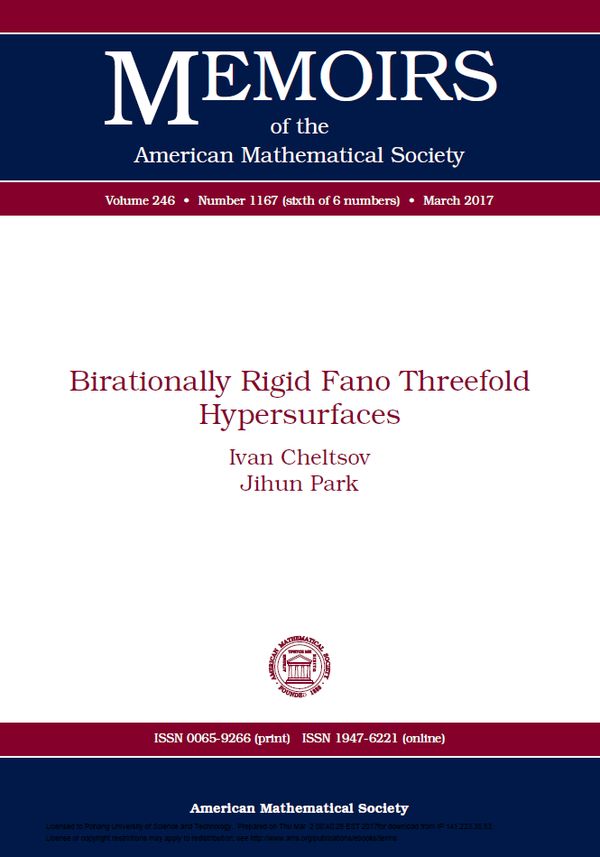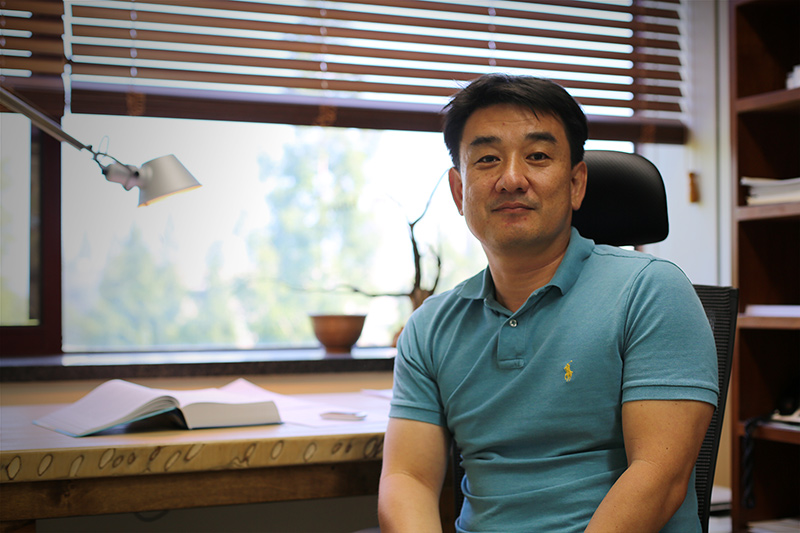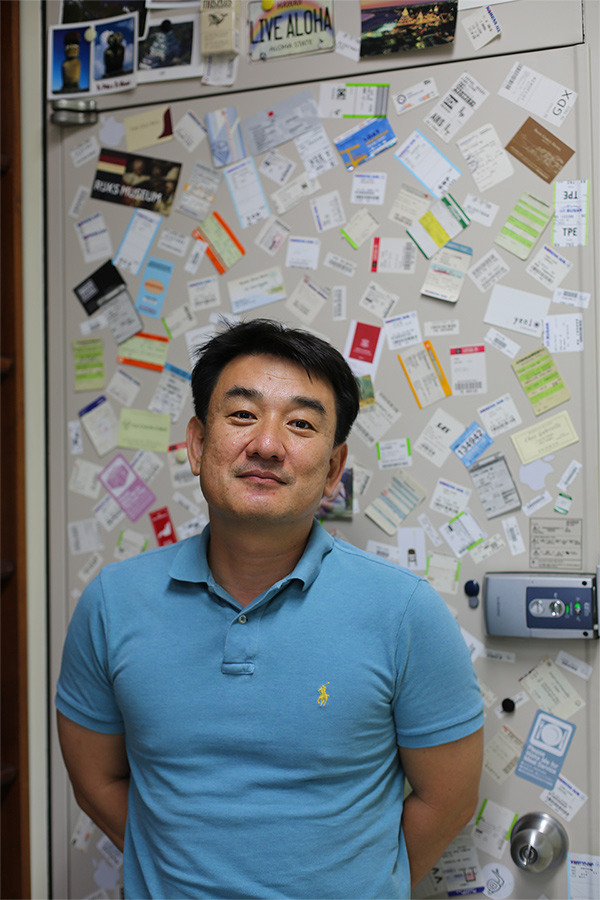주메뉴
- About IBS 연구원소개
-
Research Centers
연구단소개
- Research Outcomes
- Mathematics
- Physics
- Center for Theoretical Physics of the Universe(Particle Theory and Cosmology Group)
- Center for Theoretical Physics of the Universe(Cosmology, Gravity and Astroparticle Physics Group)
- Center for Exotic Nuclear Studies
- Center for Artificial Low Dimensional Electronic Systems
- Center for Underground Physics
- Center for Axion and Precision Physics Research
- Center for Theoretical Physics of Complex Systems
- Center for Quantum Nanoscience
- Center for Van der Waals Quantum Solids
- Chemistry
- Life Sciences
- Earth Science
- Interdisciplinary
- Institutes
- Korea Virus Research Institute
- News Center 뉴스 센터
- Career 인재초빙
- Living in Korea IBS School-UST
- IBS School 윤리경영


주메뉴
- About IBS
-
Research Centers
- Research Outcomes
- Mathematics
- Physics
- Center for Theoretical Physics of the Universe(Particle Theory and Cosmology Group)
- Center for Theoretical Physics of the Universe(Cosmology, Gravity and Astroparticle Physics Group)
- Center for Exotic Nuclear Studies
- Center for Artificial Low Dimensional Electronic Systems
- Center for Underground Physics
- Center for Axion and Precision Physics Research
- Center for Theoretical Physics of Complex Systems
- Center for Quantum Nanoscience
- Center for Van der Waals Quantum Solids
- Chemistry
- Life Sciences
- Earth Science
- Interdisciplinary
- Institutes
- Korea Virus Research Institute
- News Center
- Career
- Living in Korea
- IBS School
News Center
| Title | Mathematics, poems written with logic | ||||
|---|---|---|---|---|---|
| Name | Department of Communications | Registration Date | 2017-08-31 | Hits | 6287 |
| att. |
 thumb.jpg
thumb.jpg
|
||||
Mathematics, poems written with logic- PARK Jihun, associate director at the Center for Geometry and Physics - This interview took place at the Center for Geometry and Physics located in Pohang University of Science and Technology (POSTECH) on a scorching hot summer day. While it was sweltering outside, associate director Park's office was refreshing and humble. Walking into the office, everyone would have noticed the airplane tickets to and from various locations and postcards from around the world that decorated the door. They were the souvenirs from many conferences he attended and vacations he went on. One wall was covered by a whiteboard filled with numbers and formulas. The wall facing the board was loaded with mathematics books and papers. A sofa and small side table were placed between those walls. In his office, Park shared his insights on mathematics in a casual manner. Answer to a mystery of Fano variety three-fold hypersurfaces unsolved for 10 years
Associate director Park won the Korean Mathematical Society's 2017 Best Paper Award. Out of all papers published in the last three years, the Society selects a paper which most contributed to the progress of mathematics and awards the author. Park's paper published in Memoirs of the American Mathematical Society proved the hypothesis introduced in the 90's on Fano three-fold hypersurfaces and the Society recognized that the paper served as a pillar for other research on Fano varieties. "In early 2000, British mathematicians Alessio Corti, Alexandr Pukhlikov, and Miles Reid, devised a theorem that general quasi-smooth members in the 95 families of Fano three-fold hypersurfaces are non-rational and speculated that all quasi-smooth members in the families are non-rational. I changed one thing in the statement. I replaced "general" with "all". There is a big difference between the two words. To narrow the difference, many methods have been invented and I had to closely observe the 95 families of Fano three-fold hypersurfaces. We could finalize the theorem due to such efforts," said Park. In a four-year joint effort with a University of Edinburgh research team, they solved a problem which had been unsolved for 10 years. He proved that the 95 families of all Fano three-fold hypersurfaces are non-rational. Fano varieties, his main research topic, have a long history in the field of algebraic geometry. Algebraic geometry is a study of zeros of polynomials. It is one of the most sophisticated and studied branches of mathematics. And Fano varieties are at the heart of algebraic geometry. Park aims to understand properties of Fano varieties by approaching them with various angles to broaden what we know about Fano varieties. "Out of all families of algebraic geometry, Fano varieties are one of the more concrete studies. You can actualize, calculate, and describe them. Compared to other studies, they have the most substance. Researching Fano varieties is like being on a solo combat mission. You fight these problems by exploring and studying Fano variety properties. I've been enjoying this mission for a while," explained Park. Mathematics, not a race with a finish lineAs a child, Park dreamt of being an astronomer. He loved gazing at stars in the night sky. For college, he was torn between math and astronomy, but decided to choose simple and clean-cut math. At first, everything was overwhelming for him. He confessed that at one point he was confused whether he made the right choice. One day, he walked out of a calculus class and started a conversation with a senior from his department. He remembered telling the senior that he feels lost and doesn't see a clear vision. The senior asked him which comes first for people; a clear vision or a personal passionate drive. "After this talk, I thought I should work harder and just keep going," said Park. After completing his Master's, he went to the U.S. to further explore algebraic geometry. He finished his PhD at the Johns Hopkins University under the supervision of Professor Shokurov who researches the minimal model program. He continued his study with the guidance of Professor Alexseev, who specialized in algebraic geometry, at the University of Georgia. Park went through a period of uncertainty when he wasn't sure when he could graduate from the program. But he cast aside the doubt and dug deeper into Fano varieties. Ever since he joined the Center for Geometry and Physics as associate director, Park has been working to provide an unconstrained environment for the researchers. He believes mathematicians can best showcase their full potential when they engage in unconventional thinking. Park shared that his role is to encourage young scientists to interact with other bright-minded researchers and immerse themselves in research. He doesn't believe one can be inspired just by sitting in front of a desk for hours. "When you keep thinking about an unanswered question, all of a sudden a clue to the answer comes to you," said Park. "Mathematics is not like a race with a finish line. Mathematicians are creative minds and original ideas are born from those people who think outside the box. Sometimes thinking about unsolved questions all day gives you a headache. But once you achieve a quantum jump, the wondering will pay off and you've got yourself a great topic for a thesis," explained Park. Park also teaches mathematics to the next-generation of mathematicians at POSTECH. As a professor, there is one thing he always tells his students: "If you want to dig deep, dig wide. If you are narrow-focused, you can only dig shallow." This is a quote from a speaker at an event. It has a very powerful message. To broaden your understanding, you have to explore many different fields. Otherwise you might be completely consumed by just one field. Tapping into other areas might give you a perspective on your own study. Looking into other studies will help students with their research," said Park.
Researcher's wish, freely studying mathematicsA joint research team from Oxford and Yale has recently predicted that mathematician is the most unlikely job to be replaced by artificial intelligence (AI). The study suggested it will take 43.4 years for AI to create unique mathematical theorems and publish them in a top math journal. As a mathematician, Park shared what he thinks about the improvement of computer processing power and the advent of AI. "AI conducing mathematical research is like AI writing a novel. Our original thought process plays an important role in mathematics. Therefore, mathematicians won't be replaced easily. But there are things made better with the improvement of computers. Exchange of information has become quicker within the mathematics community. Even up till the early 1990's, some people published their PhD dissertations only to find out that similar research had already been published. To make sure you don't publish research with the same idea that someone else had, you had to either meet other researchers studying similar topics, exchange information via letters, or receive their published works. Now you can share information easily. Also, if original research is a calculation, we can run a computer simulation to verify a hypothesis," explained Park. Instead of focusing on recent trends such as AI, Park said that mathematics can be used for the public good by helping people to think logically. He pointed out mathematical thinking allows people to approach complicated problems logically. "Imagine that you have 10 sets of 10 cards and each set has numbers one to ten written on them. You can access neither a calculator nor a computer. How can you figure out the sum of all the cards?" he asked. "I would group cards that have the same number and add the totals of each group together to get the sum," answered the interviewer. "Then how would you find out the sum of 100 cards that each have a two-digit number written on them?" he asked. "I would bundle them in groups of 10, find the sum of each bundle, and then add the totals," replied the interviewer.
"In many cases, you need to think mathematically to make the most reasonable decision. To the questions I asked, a person without mathematical thinking might have answered that he would simply add all numbers up individually going one by one. Not every member of the public has to love mathematics and dedicate themselves to answering difficult math problems. That's a job for mathematicians. I just think the public needs to understand that logical thinking is made possible through learning mathematics from an early age," said Park. Park defines mathematics as "poetry is mathematics described by emotion, and mathematics is poetry described by logic. I intentionally didn't specify anything because both are written as open sets without any boundaries. The word "described" was chosen for the definition instead of "written" or "illustrated" because I wanted to use the most comprehensive verb." His words were full of his love of mathematics. Then what would be the dream of the devoted researcher? "Mathematics is my partner that shares bittersweet memories. Studying it is being in a relationship. Sometimes things go well and then I fight over nothing. There are good times and when I find the right answer to a problem, it's fun and exciting. Then I reach a dead end, not knowing why it doesn't work. It gets frustrating and I ask, "why do you hate me?" (laughter) I would like to keep it around as long as I can. That's what I want," shared Park with a smile on his face. Department of Communications, 고은경 |
|||||
| Next | |
|---|---|
| before |
- Content Manager
- Public Relations Team : Suh, William Insang 042-878-8137
- Last Update 2023-11-28 14:20














